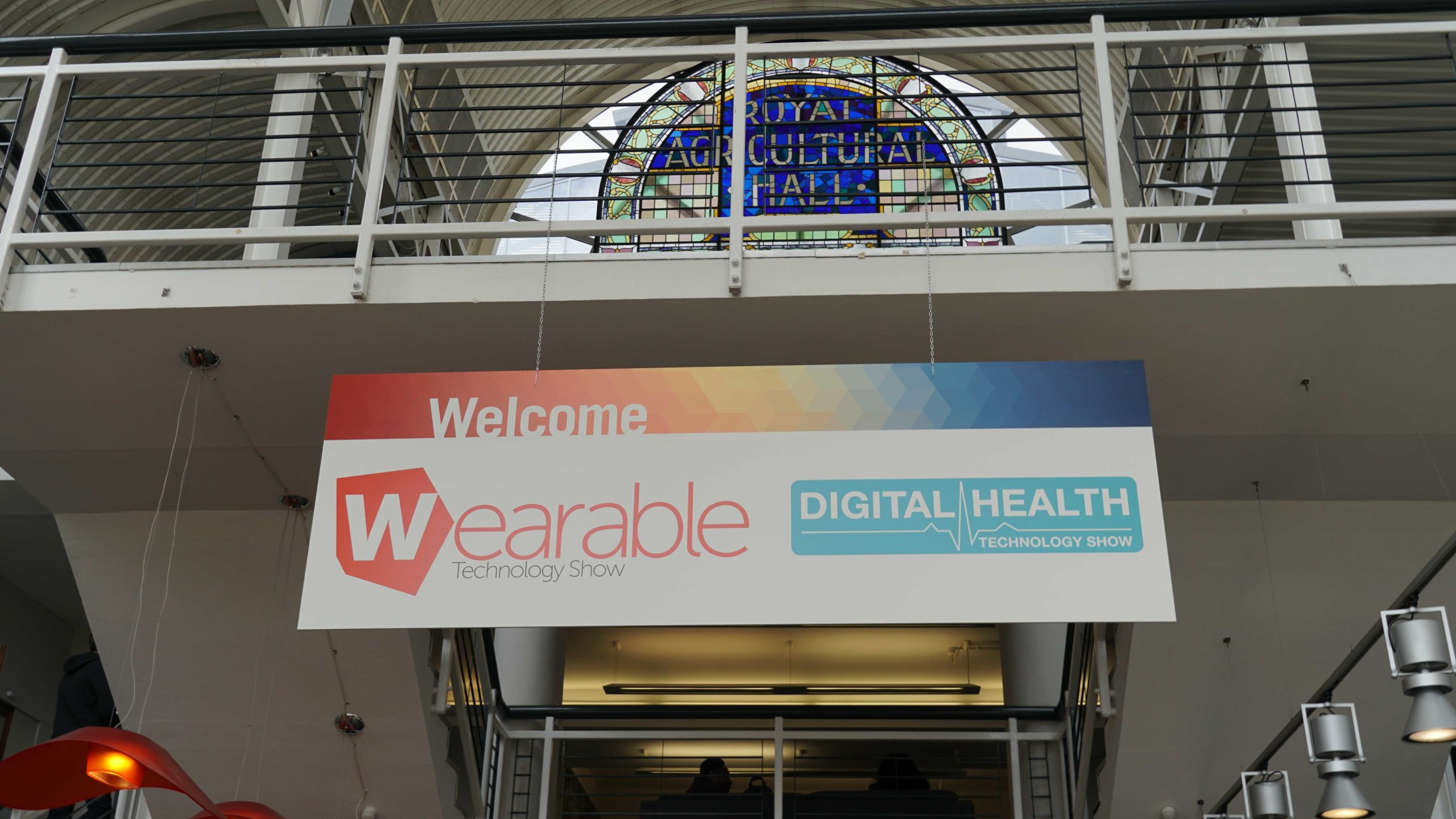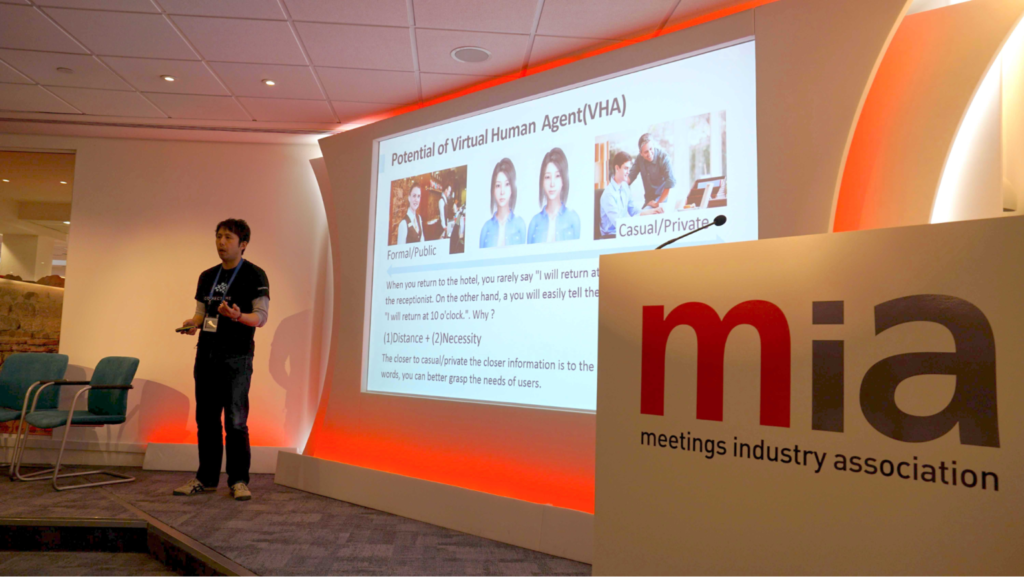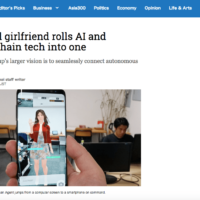
Can AI Create Hospitality?
On March 11, 2019, Couger's CEO, Ishii, gave a keynote presentation at the "Future Fit Conference" hosted by the Meeting Industry Association (MIA) at the American Square in London. The conference is held for hotel and event companies.
The conference is aimed at hospitality companies, such as hotels and event companies, where customer experience (CX) is at the heart of their business. The theme of the conference, "How Do Humans Respond to Evolving Technology?" is the theme of this industry-leading conference in London. Ishii was invited as one of their seven speakers for this year's conference.
AI Unmanned Stores Will Redefine Hospitality
Unmanned stores are a hot market for many companies, including Amazon Go.
Machines that can work around the clock aim to reduce human error and cut labor costs, and AmazonGo has achieved a breakthrough by not only reducing the stress of waiting to pay, but reducing wait times to zero, through sensors and object recognition technology.
In addition to stores, technology is also replacing human tasks, by placing tablet terminals at corporate reception desks to serve visitors.
These are not only beneficial, but also help to eliminate person to person contact.
This assertion is by no means a denial of unmanned operations. The reduction of labor costs and human error is definitely a plus for companies and customers. What is important is how to update the positive aspects of the past.
"Unmanned" gives us time to redefine hospitality.
Why is the "Virtual Human Agent," the heart of “LUDENS”, human-like?
“LUDENS” Virtual Human Agent is a human-like agent that connects people and technology.
In our daily lives, we perform a great deal of unconscious information processing and object recognition. (In fact, this sophisticated human processing is so difficult to replicate in today's AI that some are skeptical about the feasibility of self-driving cars that require object recognition in real time.)
For example, when humans see a round object, they easily recognize both different looking baseballs and soccer balls as 'rolling objects’. Also, what people perceive as something has a significant impact on communication, just as their attitude toward school teachers and their attitude toward their parents differ.
The reason why so much training money is spent in the customer service industry is because it is necessary to gain the trust of customers, and these factors vary from tone of voice, facial expressions, and language.
Virtual Human Agents take a four-pronged approach to gaining trust through "communication.

1. 3D Interface - How is it perceived by humans?
As mentioned earlier, what is perceived by humans as "what is it?” is a very important role. In fact, research on humanoid interface technology has shown that interfaces are very important in achieving communication.
2. AI technology - Can it communicate?
As more and more companies incorporate chatbots, some of the communication that has been done by humans is already automated. Of course, communication is not possible without conversation, and although there are still many challenges in natural language processing, known as NLP, the accuracy of AI conversations is evolving every day. We are integrating various types of AI, such as object recognition and emotion recognition, to achieve more accurate communication.
3. Game Technology - Can we adjust communication?
If a game is too easy or too difficult, users will not be enthused. Games are adjusting themselves during the user's play. Just as we communicate with others by "reading the room," adjusting communication in real time plays an important role in facilitating conversation with others. Our goal is to achieve a high level of human-like "coordination" by leveraging our knowledge of game technology.
4. Blockchain technology - Can it guarantee privacy?
Just as we talk to our friends about different topics than we do to our parents, we subconsciously choose who we talk to and provide information to. This is defined by the word "privacy.” “LUDENS” is researching and developing how to protect information transparency and privacy through blockchain technology.
“LUDENS” "Virtual Human Agent" is Not a Human Replacement
During the panel discussion, the question arose of whether AI will take away jobs in the future.
At first glance, LUDENS' Virtual Human Agent, which pursues "human-ness," may give the impression of taking away human jobs. However, just as there are many jobs that only humans can do, Virtual Human Agent will support humans by providing users with new communication contact points.
He emphasized that "Virtual Human Agents" will become a technology that will help the hotel and other industries refine their hospitality and improve their services.









